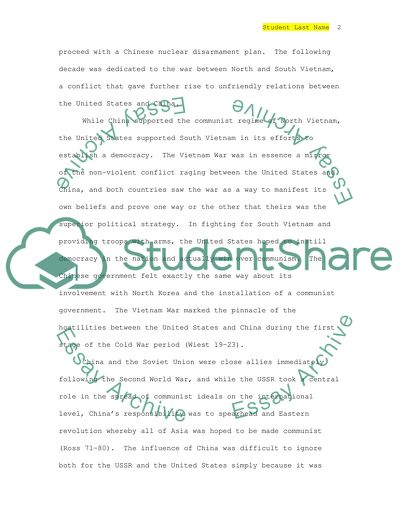Describe and explain the different stages of American policy toward Essay. Retrieved from https://studentshare.org/miscellaneous/1510647-describe-and-explain-the-different-stages-of-american-policy-toward-china-during-the-cold-war
Describe and Explain the Different Stages of American Policy Toward Essay. https://studentshare.org/miscellaneous/1510647-describe-and-explain-the-different-stages-of-american-policy-toward-china-during-the-cold-war.


